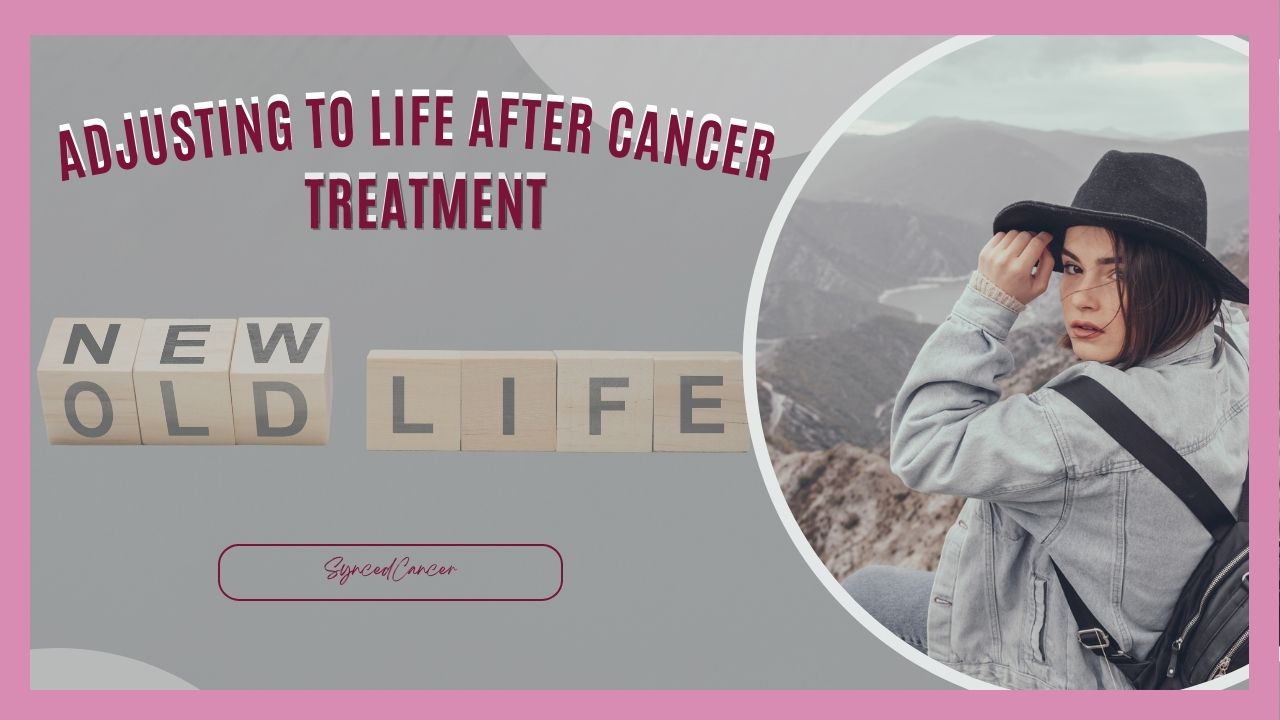Cancer treatment marks the end of one journey and the beginning of another. As survivors transition from active treatment to life beyond cancer, they often face a unique set of challenges and adjustments. This period, often referred to as embracing the new normal period, encompasses physical, emotional, and social changes that require adaptation and resilience. Embracing the new normal involves acknowledging the past, embracing the present, and planning for the future.
It’s essential for cancer survivors to recognize the significance of their cancer journey. Reflecting on the challenges faced during treatment and the strength demonstrated in overcoming them can foster a sense of resilience and empowerment. Acknowledging the emotional impact of the experience and adjusting to the physical changes post-treatment is a vital aspect of embracing the new normal. It can also be tough when others think you’re ready to move on when you’re not. You still feel some emotional and physical challenges that may come with survivorship.
Emotional Challenges
- Fear and Anxiety: Cancer survivors often experience fear of recurrence or progression of the disease. This persistent worry can be emotionally taxing and may lead to anxiety about the future.
- Depression: Coping with the physical and emotional toll of cancer treatment can trigger feelings of sadness, hopelessness, and loss of interest in activities previously enjoyed.
- Guilt and Survivor’s Guilt: Some cancer survivors may feel guilty for surviving when others did not, or for the burden their illness placed on loved ones. This can contribute to feelings of isolation and self-blame.
- Uncertainty: Living with the uncertainty of long-term side effects, potential recurrence, or changes in prognosis can lead to feelings of powerlessness and apprehension about the future.
- Body Image Issues: Physical changes resulting from cancer treatment, such as hair loss, scarring, weight fluctuations, or changes in physical function, can impact self-esteem and body image.
Physical Challenges
- Fatigue: Cancer-related fatigue is a common and persistent issue among survivors, often lasting long after treatment ends. This overwhelming tiredness can interfere with daily activities and quality of life.
- Pain: Some cancer survivors may experience chronic pain or discomfort related to surgery, radiation, or chemotherapy-induced nerve damage. Managing pain effectively is essential for improving overall well-being.
- Cognitive Changes: Often referred to as “chemo brain” or “cancer-related cognitive impairment,” cancer survivors may experience difficulties with memory, concentration, and processing information.
- Changes in Physical Function: Surgery, radiation, and chemotherapy can affect physical abilities, such as mobility, dexterity, and stamina. Rehabilitation and physical therapy may be necessary to regain function and independence.
- Sexual Health Issues: Cancer treatment can impact sexual function and intimacy, leading to changes in libido, arousal, and fertility. Open communication with healthcare providers and partners is essential in addressing these concerns.
Strategies for managing fatigue, lingering side effects, and potential anxiety about recurrence
Fatigue Management
Fatigue doesn’t have to define your life as a cancer survivor, you can reclaim your energy and live a vibrant, fulfilling life. Here are some key strategies for effective fatigue management.
- Conservation of Energy: Prioritize tasks and activities, pacing yourself throughout the day to prevent exhaustion.
- Regular Exercise: Engage in low-impact exercises such as walking, swimming, or yoga to improve energy levels and overall well-being.
- Healthy Sleep Habits: Maintain a consistent sleep schedule, create a relaxing bedtime routine, and ensure a comfortable sleep environment.
- Nutrition: Eat a balanced diet rich in fruits, vegetables, lean proteins, and whole grains to support energy levels and overall health.
- Stress Reduction Techniques: Practice relaxation techniques such as deep breathing, meditation, or mindfulness to alleviate stress and promote relaxation.
Managing Lingering Side Effects
Managing lingering side effects is an ongoing process. Here are proactive steps you can take to manage your lingering side effects and improve your quality of life:
- Open Communication with Healthcare Team: Discuss any persistent side effects with your healthcare provider to explore treatment options or supportive therapies.
- Physical Therapy and Rehabilitation: Participate in rehabilitation programs or physical therapy to improve physical function and manage pain or mobility issues.
- Medication Management: Work with your healthcare provider to adjust medications or explore alternative treatments to alleviate side effects such as pain, neuropathy, or cognitive impairment.
- Complementary Therapies: Consider complementary therapies such as acupuncture, massage therapy, or herbal supplements to manage symptoms and improve overall well-being.
- Supportive Care Services: Access supportive care services such as palliative care or integrative medicine to address holistic needs and improve quality of life.
Addressing Anxiety about Recurrence
While the end of cancer treatment can be a time of immense joy and relief, it’s also natural to experience some apprehension and worry. A common concern for many survivors is the possibility of their cancer returning. Fear of recurrence is normal and often lessens over time.
Below are some steps you can take that may help you manage your fears.
- Education and Information: Gain a better understanding of your cancer diagnosis, treatment, and prognosis through reliable sources of information. Knowledge can empower and alleviate fears.
- Regular Follow-Up Care: Maintain regular follow-up appointments with your healthcare provider for surveillance and monitoring of any signs of recurrence or new symptoms.
- Mindfulness and Stress Reduction: Practice mindfulness techniques, relaxation exercises, or meditation to manage anxiety and promote emotional well-being.
- Support Groups: Connect with other cancer survivors or support groups to share experiences, concerns, and coping strategies. Peer support can provide comfort and reassurance.
- Professional Counselling: Seek support from a mental health professional, counsellor, or therapist experienced in working with cancer survivors to address anxiety and develop coping skills.
By incorporating these strategies into your daily routine and seeking support from healthcare professionals and loved ones, you can effectively manage fatigue, lingering side effects, and anxiety about recurrence, and enhance your journey of embracing the new normal.

Importance of self-compassion and celebrating small victories
It’s essential for cancer survivors to be gentle with themselves, acknowledging the challenges they’ve overcome and the strength they’ve displayed throughout their ordeal. By practicing self-compassion, cancer survivors can cultivate a sense of kindness and understanding toward themselves, especially during moments of struggle or setback.
Celebrating small victories is equally important, as it allows survivors to recognize and appreciate the progress they’ve made, no matter how incremental it may seem. You can
- Keep a Gratitude Journal: Write down things you’re grateful for each day, including your health victories.
- Reward Yourself: Treat yourself to something special after completing a goal, big or small.
- Connect with Loved Ones: Share your accomplishments with supportive friends and family.
Moreover, celebrating these victories can serve as a source of motivation and inspiration, fueling the cancer survivor journey toward healing and embracing the new normal. It reminds them that they are capable of overcoming obstacles and finding moments of joy and triumph, even in the face of adversity.
Conclusion
One of the hardest things after treatment is not knowing what happens next. Those who have gone through cancer treatment describe the first few months as a time of change. Some think of this as a time of embracing the new normal. It’s not so much “getting back to normal” as it is finding out what’s normal for you now. People often say that life has new meaning or that they look at things differently.
Embracing the new normal after cancer treatment requires patience, self-awareness, and support. By acknowledging the past, adapting to physical and emotional changes, nurturing relationships, and setting goals for the future, cancer survivors can navigate this transition with resilience and optimism. Ultimately, the journey beyond cancer treatment is about reclaiming one’s life and embracing the new normal that lie ahead.
REFERENCES
National Cancer Institute – https://www.cancer.gov/about-cancer/coping/survivorship/new-normal
Accessed 1st April, 2024










What do you think?
It is nice to know your opinion. Leave a comment.